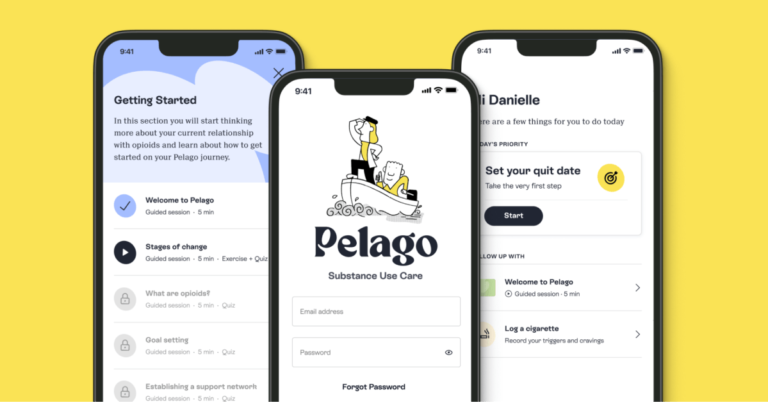Pelago, the virtual addiction clinic backed by Y Combinator, secures $58 million in Series C funding

Most recently, the company expanded its offer its virtual therapy sessions to services for adolescents across its footprint.
The virtual clinic’s medication-assisted treatment for substance use disorders is available across 50 states for adults and teens.
Since its Series B, Pelago has experienced an impressive 11x revenue surge and claims to have 100% client retention.
Pelago members have regular sessions with virtual care teams in the app, consisting of health coaches or licensed drug and alcohol counselors.
In addition to its virtual therapy interface, the company is investing in bringing more tech to bear on its business.




